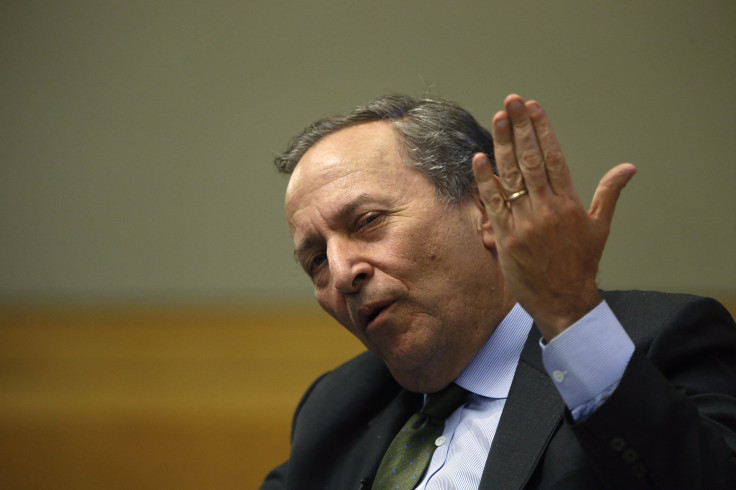Larry Summers Can't Figure Out When We'll Get Growth Back To Sustainable Levels

The U.S. economy hasn’t grown rapidly “in a financially sustainable way” in a long time, according to Larry Summers, the former treasury secretary during the Clinton administration.
In an interview with New Republic, the Harvard professor said the industrialized world economies are at risk for their investment to fall short of savings, causing higher than ideal unemployment, and even if monetary policy helped to spur investment in businesses to aid job creation, it would come along with substantial risk of financial bubbles or instability.
“The core financial crisis risk of failing banks and the like was successfully staunched and contained five years ago,” Summers said. “And yet, since that time growth has averaged less than 2 percent below almost anyone’s estimate of potential.”
Even more troubling, he said, is that the economy’s growth performance from 2003 to 2007 during “the mother of all financial bubbles with vast erosion of credit standards and extraordinary run up in artificial wealth creation in houses” was merely adequate growth.
The explanation according to Summers is a widespread pivot in the American economy. Savings have increased because as the rich, who save the most, grow wealthier, they are saving more, and increased uncertainty about future economic conditions and returns on investments have encouraged Americans to set aside more money for retirement and college funds. At the same time, up and coming companies like WhatsApp Inc. and Facebook, Inc. (Nasdaq: FB) require less investment in capital goods than traditional factories and offices like Sony Corp.’s (NYSE: SNE).
He also said the U.S. should promote its exports and remove barriers to private investment in addition to fiscal stimulus to increase output and employment, but he cautioned that achieving demand through easy money measures like low credit standards would be less conducive to financial stability than somewhat higher borrowing costs paired with public or private investment.
“Just how good will the investments be if you need extraordinarily low interest rates to call them forth?” he said. “Low interest rates operate to inflate asset prices and it’s primarily the most fortunate who hold capital assets… And it places responsibility for financial stability on so-called macro prudential tools which we also don’t have extensive successful experience with and which may prove more difficult to use than is currently hoped.”
© Copyright IBTimes 2024. All rights reserved.





















